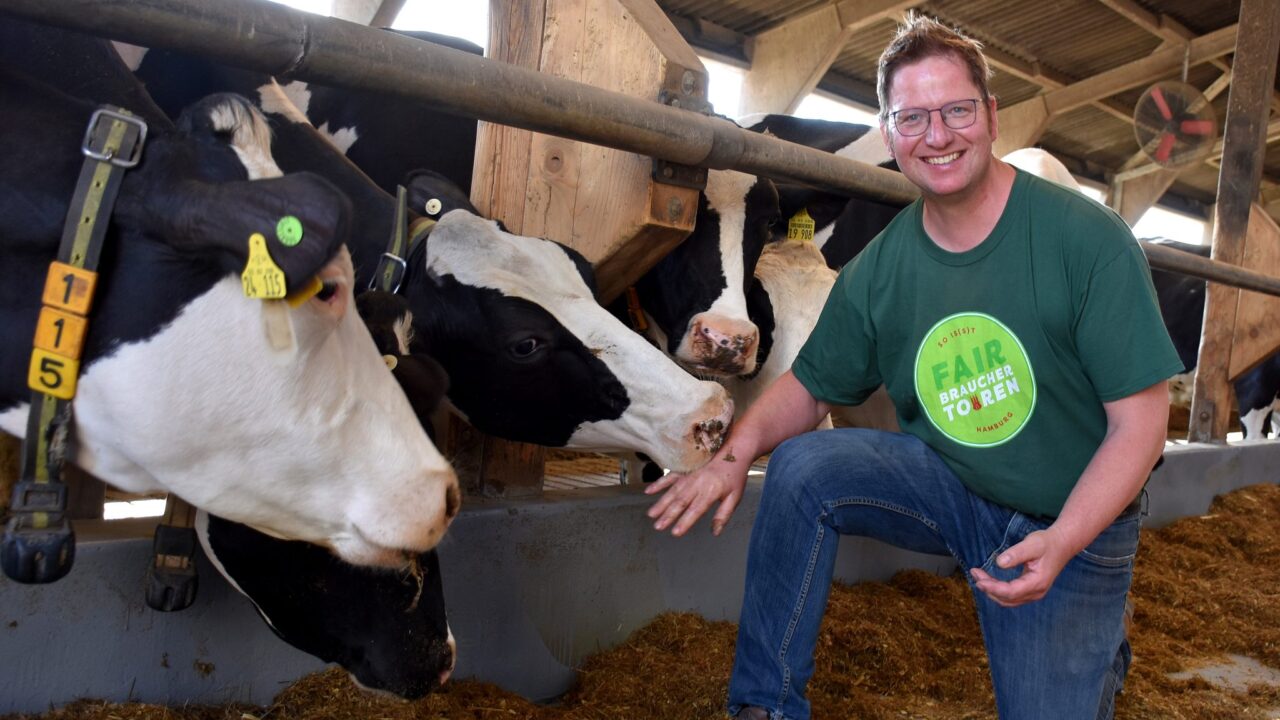Selling milk direct to consumers is a path many dairy farmers have taken, mostly using vending machines and farm shops to retail their produce.
This approach has proven quite lucrative for some farmers, but more commonly to most others for selling lower volumes of milk, with dairy processors still taking the remainder.
When two neighbouring German farmers decided they wanted to add value to their milk production systems, they agreed to join forces setting up a large milk run and an on-farm café.
The business plan also included hosting talks for the public on the farm, educating them on how the milk is produced, and encouraging them to try and buy the various dairy produce afterwards in their on-farm café.
It was a win-win situation that has proven very popular for the farmers, who now have a strong team behind them delivering milk and working on the farm.
German farm link up
Back in 1997, neighbouring farmers Rainer Kohrs and Jan-Hendrik Langeloh amalgamated their resources to increase their farms production and efficiency.
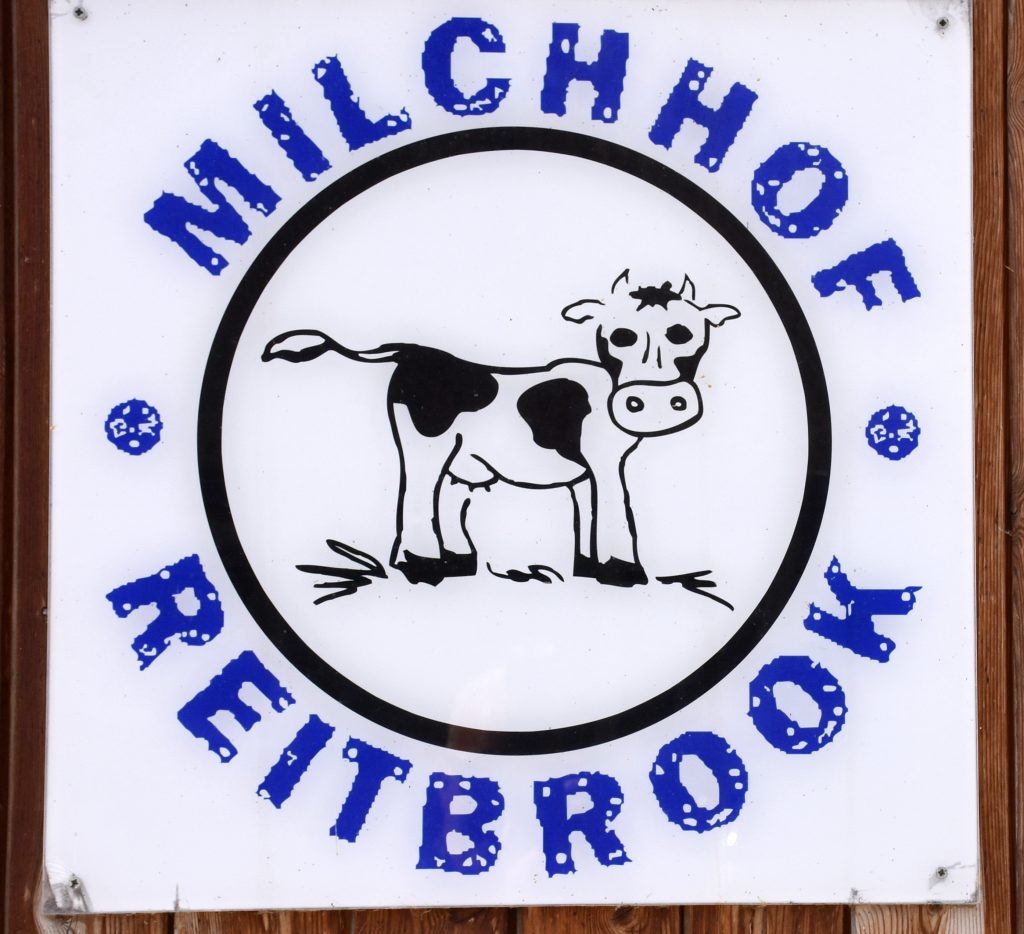
Based at Elbe-Urstromtal, south-east of Hamburg, their new business was called Milchhof Reitbrook with a focus of direct selling to consumers.
Jan-Hendrik, who is also a part-time fireman, said: “Our farm now extends to 252ha, which is mostly dedicated to grass production with 9.5ha of spring wheat and 20ha of winter wheat, plus 67ha of maize silage, to use in the cows’ ration.
“We are running 175 Holstein cows with an average yield of 9,500kg per cow, and an average lifetime production of around 32,000kg.
“The milk quality averages around 3.4% protein and 4.2% butterfat. In total we produce around 1.4 million kg of milk per year, of which 1.2 million kg is sold direct to the consumers.
“Around 5% of this 1.2 million kg is sold as raw milk direct to consumers, and the remainder is pasteurised in our processing unit,” he said.
The farm runs a DeLaval herringbone milking parlour with nine units up each side, which takes two hours each milking with an average 2.5 staff milking.
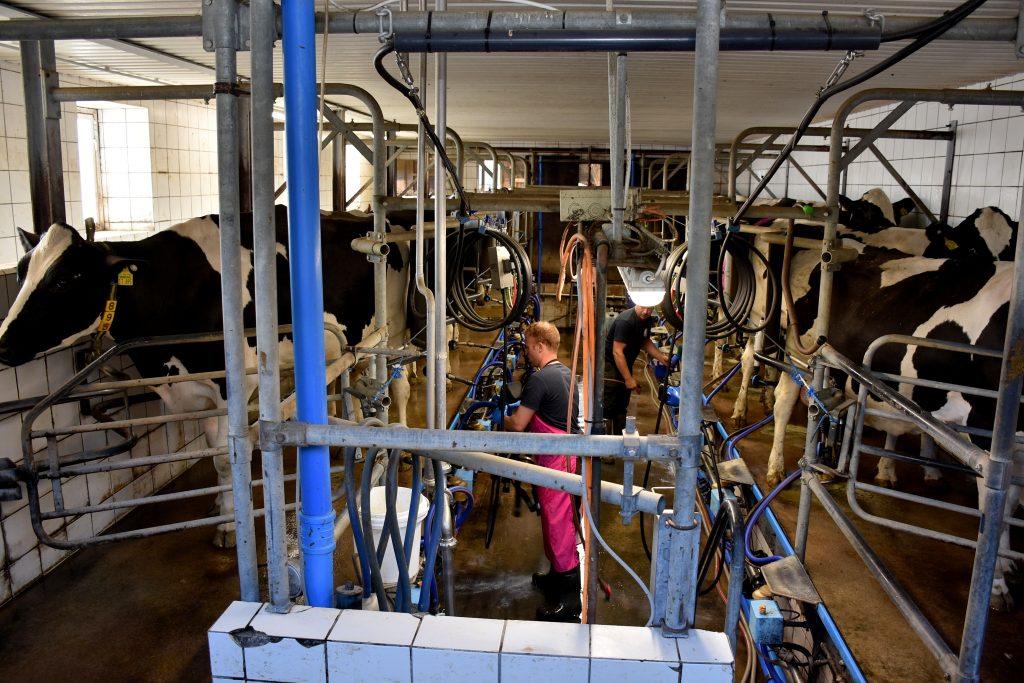
“The parlour was built in 1997 and we keep adding bits to it over the years to keep it efficient. At first we built a six-unit parlour, then five years later added three more units up each side,” Jan-Hendrik added.
The milk enters a continuous pasteuriser at approximately 1,000L/hr production run. It is then sold in the form of milk and yoghurt delivered direct to the customers, mainly in returnable plastic packaging to increase the farm’s sustainability.
“We also produce around 3,600kg of cheese per year, made from our own milk in a mobile cheese dairy. All this dairy produce is delivered by our own fleet of 11 delivery vehicles,” Jan-Hendrik said.
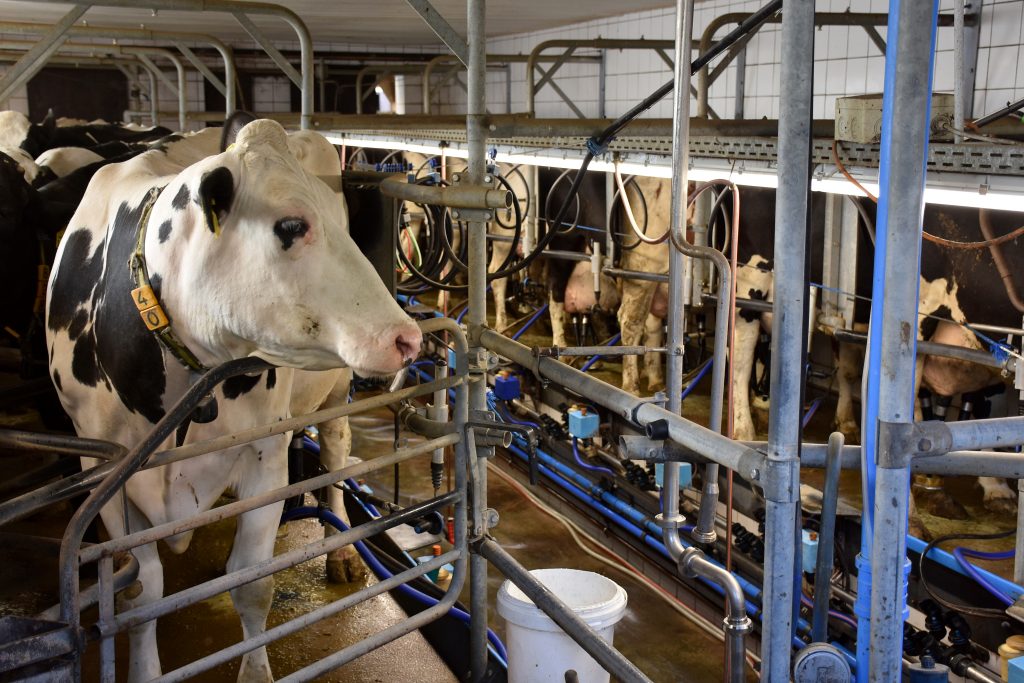
The company currently supplies around 1,500 private households as well as cafés, restaurants, schools, kindergartens and retail and farm stores.
There are 40 staff in total in the business, including 15 drivers, six people working on the dairy farm, as well as other dairy production and office staff.
“We have a dedicated team looking after and milking the cows every day,” Jan-Hendrik continued.
“Most of our workers are locals from Germany, but we do have regular staff looking after the cows from Macedonia and Romania, who have been with us for a long time now.”
Grazing and breeding
Cows are grazed outside during the warmer months but can go indoors if the sun proves too hot for them.
The main cow barn was built in 1998 and offers plenty of space, light, and fresh air for the cows.
The farm uses sexed semen on the best cows to produce heifer calves as followers, calving around September time.
Beef bulls are used on the remainder of the herd, mostly Belgian Blue, to produce quality beef calves sold to other farmers to rear for beef.
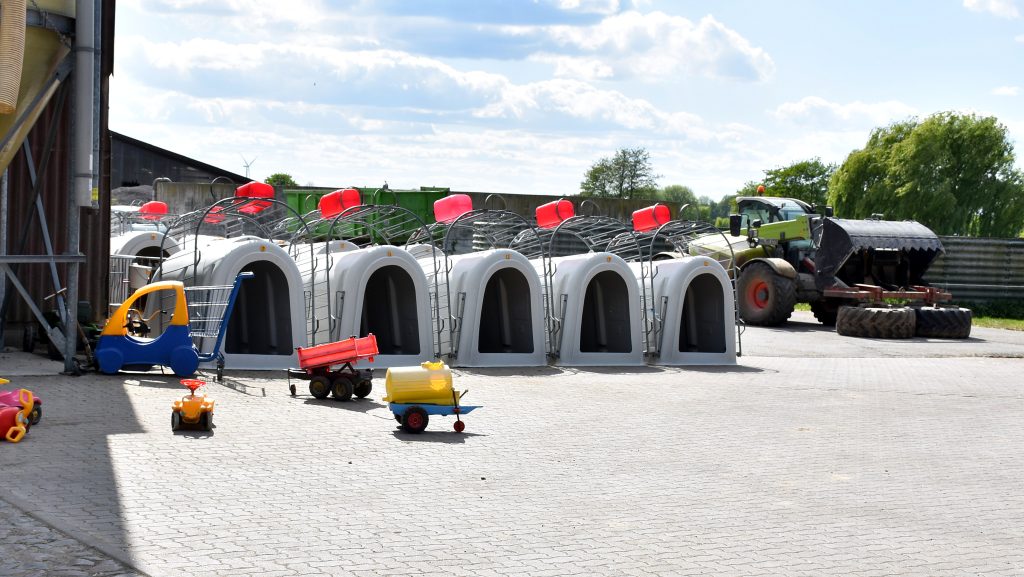
Jan-Hendrik said: “We have around 130 dairy followers of various ages on the farm. Ideally, I like to keep my cows longer in the milking herd, therefore we don’t need to rear so many dairy heifers each year.
“There are always a lot of farmers wanting our dairy-beef-cross calves to rear for beef and we usually receive quite a good price for them.”
Back in 2024, the Hamburg Farmers’ Association launched an initiative called ‘Fairbrauchertouren’ which allows consumers to book farm visits to learn how their food is produced.
The goal is to better connect consumers with farming methods and give them a better understanding of life on a farm.
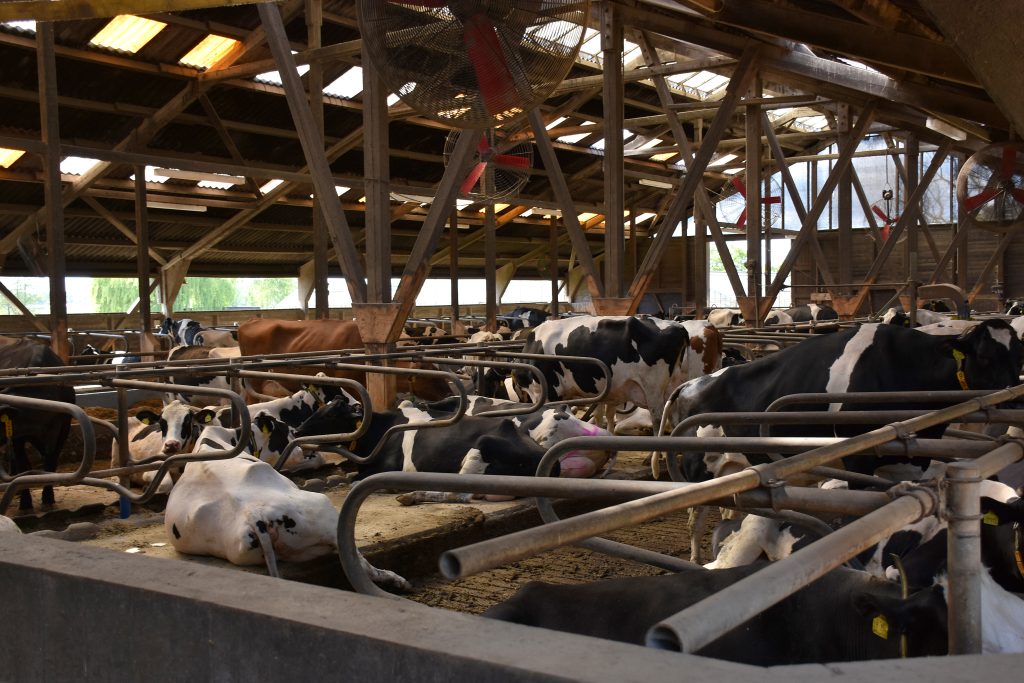
Hendrik, who signed his farm up to the programme, added: “I enjoy showing them around and answering the many questions they have, right from school kids to older generations.
“More and more people are today interested in where their food comes from, yet not so many have any idea how modern farming works.
“It is our job to show them how we work, and how food gets to their tables. I am very pleased to be part of that education programme,” he added.
